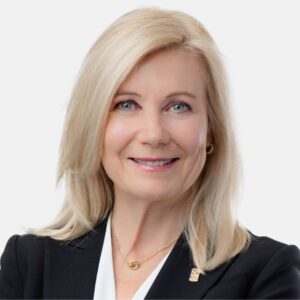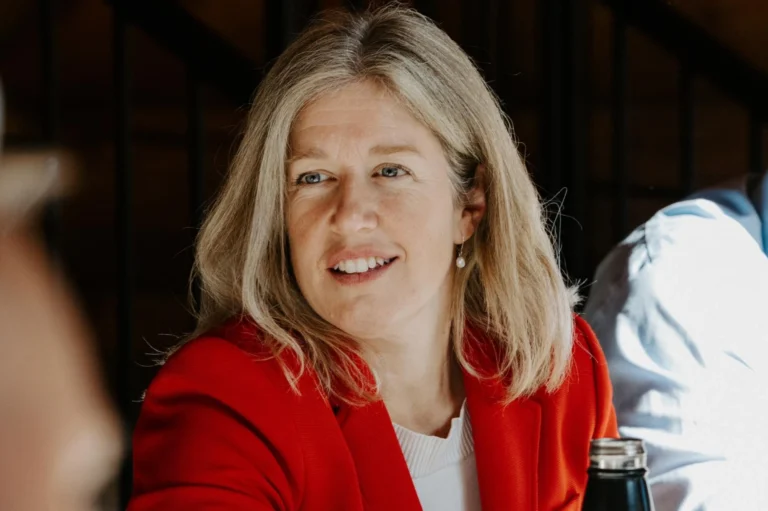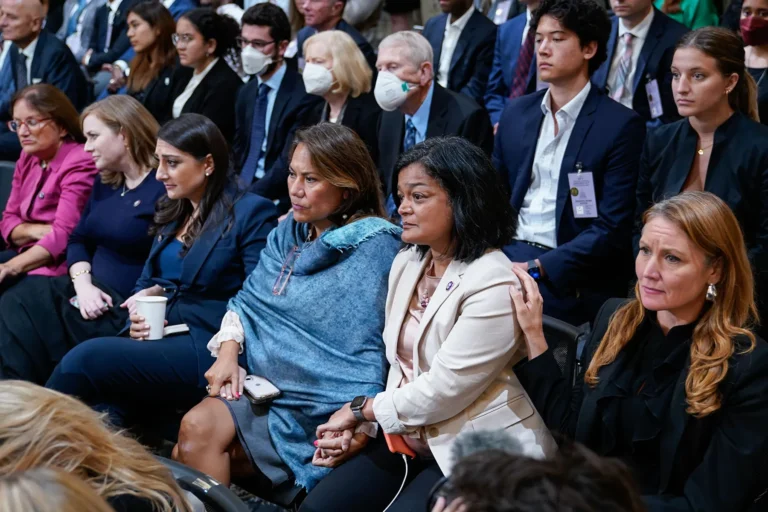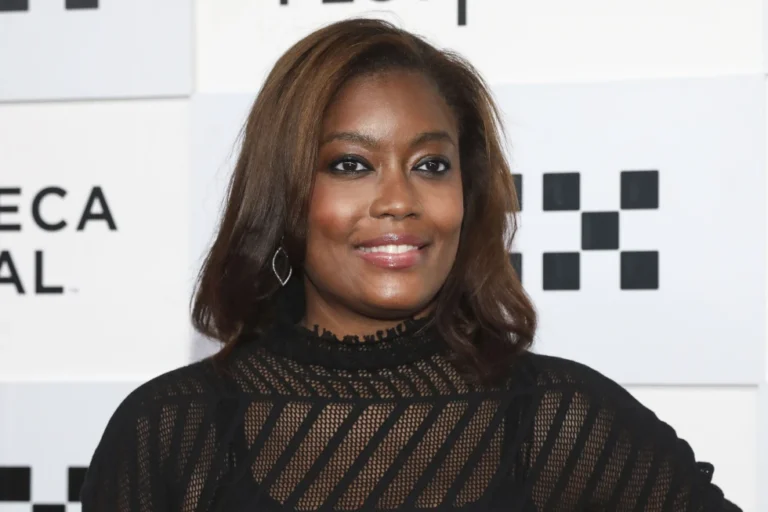Melissa Carvalho — One of Canada’s Top 20 Women in Cyber Security, and VP at RBC
Join Jennifer and Catherine on this episode of The Honest Talk as they sit down with Melissa Carvalho, RBC’s Vice President of Global Cyber Security Strategic Services. Recognized as one of Canada’s Top 20 Women in Cyber Security by IT World Canada and a global executive standout, Melissa shares her inspiring journey — from dreaming of a career as a teacher to becoming a leading cyber security expert, to battling imposter syndrome and facing discrimination.
In this honest conversation, Melissa discusses the pressing issue of cyber security affecting companies of all sizes. Get ready for an insightful discussion that goes beyond achievements, offering a glimpse into the personal challenges and triumphs of a woman who has broken barriers in the male-dominated world of cyber security. Don’t miss this episode for a dose of inspiration and valuable insights into navigating a successful career in a rapidly evolving industry.
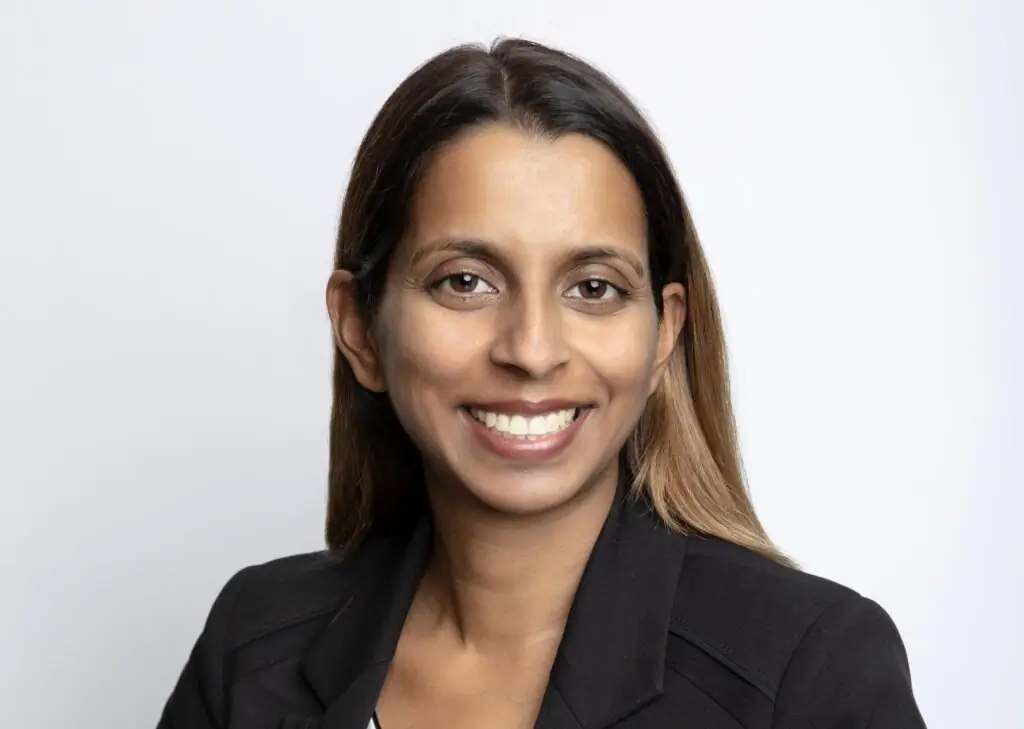
From teaching to cyber security expert
Jennifer Stewart: You’re working in one of the most time-sensitive, dynamic, and impactful arenas right now, because our companies and institutions are facing frequent cyber threats. How did you get into this field?
Melissa Carvalho: I started my career wanting to be a teacher and went to teachers’ college. In my last year, the Y2K year, I decided to join IBM. They had indicated they were starting their cyber consulting practice, and I thought I could always go back into teaching but it might be difficult to go back into cyber security. So that’s how I started. Then I went from one organization to another, even doing my own consulting for a period of time, before I finally landed at RBC.
Catherine Clark: How did you feel when you made that decision to leave behind teaching and take on this new path?
Melissa Carvalho: I don’t know if I’ve truly decided to leave teaching — each year the Ontario College of Teachers sends me a note to renew my dues, and each year I have that struggle to make that decision all over again. It was a difficult decision. My parents were worried about it. I think the hardest thing for me was the imposter syndrome, of thinking I’m not sure I’m going to be good enough in this space, I don’t have years and years of cyber experience. That continues to be the hardest part when we ask women to apply for jobs, and continues to be a struggle in our industry.
Advice for women to overcome imposter syndrome
Jennifer Stewart: Melissa, talk to us about imposter syndrome. We have an article on our digital platform about imposter syndrome, and it’s one of the most-read articles on the site right now. How did you overcome this? And what advice do you have for other women that grapple with imposter syndrome?
Melissa Carvalho: I don’t think I’ve overcome it. I struggle with it on a regular basis. The only advice that I can give other women is you just have to leap, you have to take that chance. Some of the most growth that I’ve ever done is by being in a position where I don’t know everything. When I know everything, I’m very complacent and so I don’t grow as much. But when I’m put in a situation where I don’t know everything there is to know, I pay more attention, I study and I research it, and I find that I grow more as an individual. I think that’s how I ended up overcoming it from one position or meeting or job to another. I have to become comfortable with the discomfort and so maybe that would be the advice that I can give.
I struggle with imposter syndrome on a regular basis.
Melissa Carvalho
Catherine Clark: Women face a lot of barriers and obstacles anyways — choosing to put themselves in a situation where they don’t know everything, when they are uncomfortable, is something that a lot of women resist. What have you learned about yourself that has made that the right choice for you? Do you have tips that you’d give to other women on how they can embrace that approach themselves?
If it’s not going to matter in five years, don’t spend more than five minutes worrying about it.
Melissa Carvalho
Melissa Carvalho: I’ve learned that many people, regardless of gender, feel the exact same way — it’s really important to understand you’re not alone when you go through this. One of the things that I try to remind myself each day is the five by five rule. So if it’s not going to matter in five years, don’t spend more than five minutes worrying about it. I have to remind myself about that every single day, because I spend a lot of time over thinking or worrying about situations. But in all honesty, five years ago I can’t remember exactly what I was worrying about, so it really shouldn’t matter in the longer term.
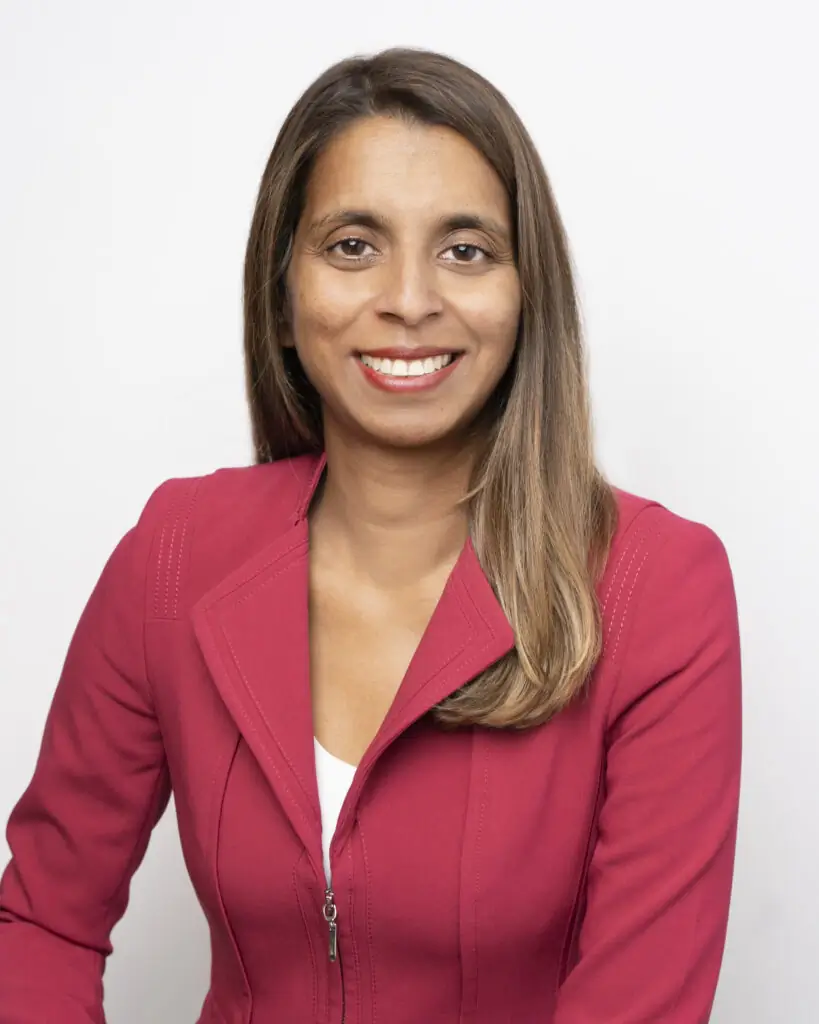
Facing discrimination as woman and a visible minority
Jennifer Stewart: Have you faced discrimination over the course of your career?
Melissa Carvalho: I have faced a lot of discrimination over the course of my career, and I can never pinpoint what the discrimination is for — whether it be the fact that I’m a visible minority, the fact that I’m a female, the fact that I look younger than I am. I’ve learned to embrace it. I’ve learned to enjoy being the underdog when I’m in situations, and it teaches me to pay attention to what people say and do and how they react to me.
I have faced a lot of discrimination over the course of my career, and I can never pinpoint what the discrimination is for — whether it be the fact that I’m a visible minority, the fact that I’m a female, the fact that I look younger than I am.
Melissa Carvalho
Catherine Clark: In your late 20s, you felt that you had hit a ceiling in your company, and so you made the decision to leave and become a consultant. What was it like leading up to your decision to step away from an employer and start your own thing?
Melissa Carvalho: I was raised to believe you join one organization and you stay there until you retire. So it was a very difficult decision. The feedback I was receiving at the time were simple things — to get to the next level, I need to sell more, I need to smile more, I need to work a little bit harder. It just became frustrating. I would start each year with this set of goals, hit those goals, exceed the goals, and still not get to the next level. I finally had to make the decision and just try it on my own. And part of the reason for doing that was because somebody said to me, “If you don’t believe in yourself to take this leap, how do you expect the company to believe in you to take the leap?” That really stuck with me. I also benefited from the fact that I was financially stable, and I think that was another important factor in my decision-making process because not everybody has that luxury.
Jennifer Stewart: I love that you talked about the need to believe in yourself. How have you built that internal voice and that self-confidence in the face of discrimination and criticism?
Melissa Carvalho: That’s a really hard thing to do, and I don’t know that I end up spending time defending myself as much as I defend others. In everyday meetings, I might state something and then a man will state it over again and people will just jump into it and say, “That’s a great idea!” If you think about going to eight hours of meetings in a day, that tends to wear at you. I found that for me, the best way is to focus on the other women — the women I mentor, the women that I’m helping coach — and when they’re in meetings and I see that happen, to be positive and to reaffirm that they stated the statement. That builds my own confidence, because when I’m looking to help others, I then look for it in myself because it’s really hard for me to defend myself personally.
Supporting women in the workforce
Catherine Clark: From the things that you’re describing from your own experience, it does sound like we have a pretty far distance to go to actually achieve real equality in the workforce. We also just featured another story on our digital platform about the fact that women continue to earn less than men in the workforce. So what are we doing wrong? And what more do we need to do?
Melissa Carvalho: I’m not sure I know what we’re doing wrong. I have ideas on what we can do better, especially the area of cyber security. I think we need to change the way in which we hire and open doors for women. We can’t expect women to have years of education — many girls drop out of cyber or tech courses at a young age, for whatever reason. And so they’re already behind the eight ball when you think about them eventually wanting to apply to cyber or tech roles.
What we’ve been doing, at least in my team and in my group, is we’ve been changing the job criteria. Part of the reason is when you think about cyber security, and you think about the type of attacks that we’re prone to, it’s really simple things where people just exploit vulnerabilities, gaps in processes, and simple things that are out there. If 50 per cent of the population is women, we should really be hiring women to look at those processes because they might know it best. I think it’s looking at those things, real life examples of how we can open opportunities that are helpful.
What I’ve noticed is, if the team is diverse and the people you work with are diverse, the solutions are richer.
By encouraging more diversity — whether it be gender, race, age, creed — it really helps to build a better set of solutions, and a better society.
Melissa Carvalho
Jennifer Stewart: You’re also the RBC technology and operations co-lead for the LGBTQ+ leadership team. And you’ve talked about creating an environment that lets people comfortably bring their true selves to work. What does that mean to you in practice, and how do we get to that place in the workplace?
Melissa Carvalho: It means it should be irrelevant who we are, what we are, what we represent. We should look beyond that when we talk to people, and when we work with people. The pandemic was very difficult for people in the LGBTQ+ community. For me, becoming part of the group was a great opportunity to amplify the areas of struggles, as well as the areas of opportunity. One of the things I’m really proud of is that we put our pronouns at the end of our names when we join sessions, such as the WebEx or the Zoom sessions — that was part of helping the community to identify. Those are the little things that I think we can do, but we still have a long way to go for all diversity and inclusion.
Catherine Clark: You are really involved in fostering change and encouraging people to be comfortable in the workplace. Talk to us about your ‘why.’ What kind of an impact are you trying to make?
Melissa Carvalho: I think it’s the impact of just feeling comfortable. I find that when I feel comfortable in what I’m doing or in a role, I really have the ability to grow and provide my ideas. There have been so many times in my career where I haven’t felt comfortable walking into a meeting or going into a presentation. I still get a lot of advice today, going into a meeting or into a presentation that I have delivered time and time again and in which I am the subject matter expert, and my male colleagues try to provide me advice on how I should do it, even though they might have never presented on the topic before. And so, the ‘why’ for me is really about wanting people to feel comfortable to deliver their best.
Travelling provides perspective on social issues
Jennifer Stewart: Melissa, you love to travel. You’ve been to over 65 countries and all seven continents. How does travel fill your soul, and how did being stuck at home unable to travel during the pandemic affect you?
Melissa Carvalho: I think I’m now up to 75 or 77 — I’ve been really travelling this year to try to make up for the pandemic. Part of the reason that I travel so much is when I was 25 years old, my mom got sick in a very short period of time and passed away. For me, it was really about wanting to see the world almost in a way that I feel like she’s always with me — so when I travel, she gets to see it with me. But it has really opened my perspective. I see discrimination, I see people who have struggles, and it gives me a broader perspective on things, especially in the type of field that I’m in, in technology. And it really has, I guess, grown my desire and my drive to be in nonprofits, like Women in Identity. I see a lot of discrimination with the digital identification programs they’re putting out there — in countries like India or Kenya where it’s being used by design to exclude people, to exclude people from services. And so part of what I do when I travel is really pay attention to the people and their struggles as well.




